As an avid chicken owner, I’ve always been intrigued by the dietary habits of my feathery friends. It wasn’t long before I asked myself, do chickens eat crickets? Surprisingly, the answer is a resounding yes! Chickens, it turns out, are quite fond of these chirpy insects, gobbling them up with the same enthusiasm as their favorite seed or grain.
Diving deeper into the world of chickens and their diets, I discovered that crickets are more than just an occasional treat. They are, in fact, protein powerhouses that can help supplement the nutritional needs of my flock. Watching them playfully chase after the jittery insects is nothing short of entertaining!
In this article, we’ll explore why and how crickets can benefit a chicken’s diet. We’ll also touch upon other essential dietary components, introducing alternatives and keeping an eye on your chickens’ health post-dietary changes. By the end of it, you’ll be a cricket-chicken diet expert, ready to bring some chirpy joy to your flock!
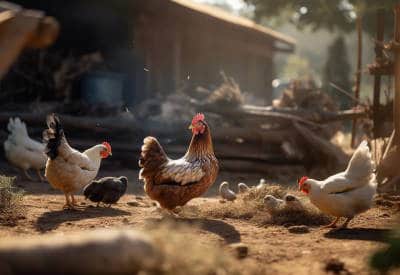
Understanding a Chicken’s Diet
Chickens, by nature, are omnivores with a very diverse diet.
What Chickens Naturally Eat
Naturally, chickens consume various plants and animals to meet their nutritional needs. This includes seeds, grass, grains, bugs, and small creatures. Anything that can be pecked at, from garden pests like snails and worms to stray bits of vegetables and fruits, can be part of their meal.
How Chickens Forage
One of the fascinating behaviors chickens exhibit is foraging. They love scratching and pecking at the ground in search of food, which also helps them exercise. As a chicken owner, you’ll often see your flock bustling around, searching for their next bite.
The Nutritional Needs of Chickens
Though their diet is varied, chickens require a balanced blend of proteins, vitamins, and minerals to stay healthy. Commercial feeds are designed to provide these needs, but supplementing their diet with natural sources is often recommended.
[ChickenAffiliate]
The Role of Insects in a Chicken’s Diet
Insects play a significant role in a chicken’s diet.
Why Insects are Important for Chickens
They’re packed with proteins, a vital nutrient that promotes growth and egg production. Also, chasing after a jittery insect provides both physical and mental stimulation for chickens, mimicking their natural behavior in the wild.
Different Types of Insects Chickens Eat
Chickens aren’t picky when it comes to insects. From flies to beetles and caterpillars, they’ll happily gobble them up. Even creepy crawlies like spiders don’t escape their sharp beaks!
How Chickens Hunt for Insects
Watching a chicken hunt an insect can be quite amusing. They’ll eye their target, stalk it, and when the moment’s right, they’ll nab it with a swift peck. You could almost call it their version of a wild safari hunt!
Can Chickens Eat Crickets?
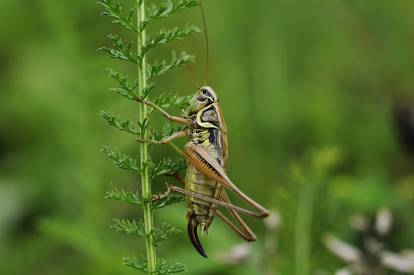
Crickets and chickens – an interesting mix, isn’t it?
Overview of Chickens and Crickets
In short, yes, chickens can eat crickets. They’re one of the favorites amongst many flocks. You’d think it was chicken candy with how they race to gobble them up!
Health Benefits of Crickets for Chickens
Crickets are protein powerhouses, offering additional benefits for your chickens. They’re also rich in essential nutrients like calcium and phosphorus, crucial for bone health and eggshell quality.
Potential Risks of Feeding Chickens Crickets
While crickets are nutritious, like anything, they should be fed in moderation. Overfeeding can lead to obesity and related health issues. It’s also essential to ensure that your crickets are free from pesticides or harmful chemicals.
How to Introduce Crickets to Your Chickens’ Diet
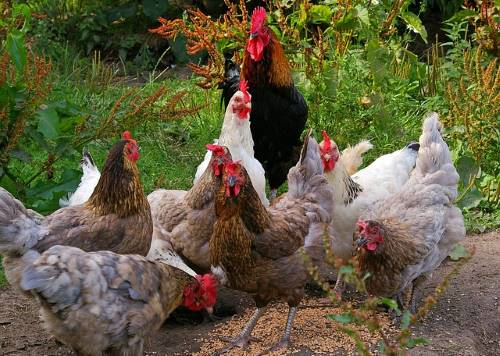
Now that you’re convinced, here’s how to make crickets a part of your chicken diet.
Sourcing Crickets: Store-Bought vs. Wild
You can buy crickets from pet stores or online retailers. Alternatively, you can catch wild crickets, but ensure they come from an area free of pesticides.
Properly Preparing Crickets for Chicken Feed
Store-bought crickets can be fed directly to chickens. If you’re using wild ones, keeping them in a container with some vegetable scraps for a day is best. This process, called ‘gut loading,’ helps to cleanse them of possible contaminants.
Tips for Introducing Crickets to Chickens
If your flock hasn’t eaten crickets before, they may need some time to develop a taste. Start by introducing a small number and observing their reaction. With time, the sight of crickets will have them flapping with excitement!
Alternatives to Crickets in Chicken Feed
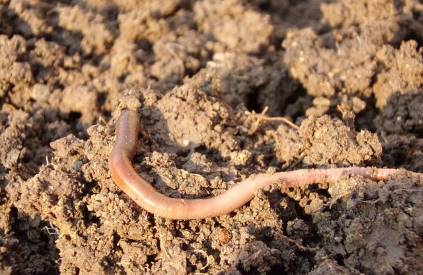
Even if your chickens fall head over heels for crickets, variety remains key to a balanced diet.
Other Insects Beneficial for Chickens
Mealworms, earthworms, and grubs are some other insect options you can introduce. Each provides a unique set of nutrients, contributing to your chickens’ health.
Non-Insect Protein Sources for Chickens
Non-insect sources like seeds (think sunflower and flax seeds), legumes, and even dairy products can boost the protein content in your chicken’s diet. Remember, these should complement, not replace, a balanced commercial feed.
Homemade and Commercial Chicken Feed Options
While supplementing with crickets and other treats, don’t overlook the importance of a reliable, nutritionally complete chicken feed. It ensures your chickens get the right mix of nutrients, keeping them hale and hearty.
Observing Your Chickens’ Behavior and Health After Introducing Crickets
Once you introduce crickets, keep a keen eye on your flock.
Normal Chicken Behavior When Presented with Crickets
A healthy, happy chicken will actively chase after and peck at the crickets. It’s part of their natural hunting instinct and a great way to get them moving.
Signs of Nutritional Imbalance or Health Issues
Monitor your chickens for any signs of nutritional imbalance, such as lethargy, reduced egg-laying, or changes in their feathers. While crickets are generally beneficial, like any dietary change, they can sometimes cause issues.
When to Consult a Veterinarian or Chicken Expert
If you notice any adverse reactions or if your chickens’ behavior or appearance changes dramatically after introducing crickets, it’s a good idea to consult a veterinarian or a chicken expert. They can guide and help ensure your flock gets the nutrition they need.
Beyond the Basics: Diving Deeper into Chickens and Crickets
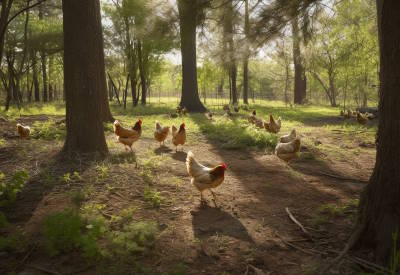
Indeed, there’s always more to explore regarding chickens and crickets. Here are a few additional points that might be of interest:
Raising Your Own Crickets
If your chickens have developed a serious love for crickets and you feel adventurous, you could consider raising your own. This would give you a consistent, controllable source of crickets for your flock. Plus, you’ll be certain they’re pesticide-free.
Crickets as Treats
While crickets are nutritious, remember to consider them a treat rather than a staple of your chickens’ diet. Too much of a good thing can still be detrimental. Strive for a balanced diet with commercial feed as the backbone and crickets and other treats as supplements.
Environmental Impact of Crickets
Crickets have a smaller environmental footprint than many other sources of animal protein. They require fewer resources to farm and produce less greenhouse gas and ammonia than traditional livestock. So, by feeding your chickens crickets, you could be making a more eco-friendly choice.
Health Check
Always monitor your chickens’ health when introducing new elements to their diet. If you notice anything unusual – reduced appetite, changes in droppings, feather loss, lethargy – after introducing crickets, it’s best to consult a vet. Your chickens’ health should always be a priority.
What Other Insects Can Chickens Eat Apart from Crickets?
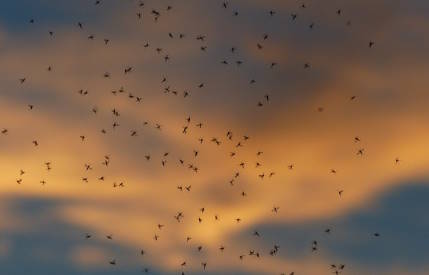
While crickets hold a special place in a chicken’s diet, they aren’t the only insects chickens can chow down on. Many other crawlers and fliers end up as chicken feed, often providing a much-needed source of protein and amusement for your feathered friends. Let’s look at five more insects chickens will happily feast upon.
Ticks
Ticks aren’t just a nuisance to us but also to many animals. The good news is chickens love to snack on these tiny pests. As they forage, chickens can help keep the tick population in check, reducing the risk of tick-borne diseases around your property. And from a nutritional perspective, ticks are packed with protein, making them a good food source.
Read More: Do Chickens Eat Ticks? Unveiling Their Role In Pest Control
Mosquitoes
Mosquitoes may be the bane of our summer evenings, but for chickens, they’re a flying feast! Chickens will snatch mosquitoes out of the air or off the ground, reducing these pesky insects’ numbers. As a bonus, eating mosquitoes can provide extra hydration on warm days.
Read More: Do Chickens Eat Mosquitoes? Surprising Benefits Revealed
Maggots
Though they may not be the most appealing critters to us, chickens consider maggots a delicacy. Maggots are rich in protein, making them nutritious for your chickens’ diet. Plus, their squirming movements provide excellent mental stimulation for your birds.
Read More: Do Chickens Eat Maggots? Unveiling The Surprising Benefits
Fleas
Fleas, like ticks, can bother animals and humans alike. Luckily, chickens find these little critters irresistible. While pecking and scratching around, chickens will gladly eat any fleas they come across, helping to control infestations.
Read More: Do Chickens Eat Fleas? Your Backyard’s Secret Pest Patrol
Flies
Chickens love a good fly feast! They’ll happily chase, catch, and eat flies, turning an otherwise annoying insect into a tasty treat. Beyond the amusement of the chase, flies offer a protein punch and aid in breaking up the monotony of their regular feed.
Read More: Do Chickens Eat Flies? Uncovering The Fascinating Truth
Do chickens eat crickets – final thoughts
Well, there we have it – all your cricket-related chicken questions answered! Who knew that these chirpy insects could be such a hit with the feathery crowd? More than just poultry entertainment, crickets offer a valuable source of protein that can help to spice up your chickens’ dietary routine, contributing to their overall health and well-being.
So, next time you’re wondering, do chickens eat crickets? You’ll know the answer and be equipped with the hows, whys, and what to watch outs when adding these protein-packed bugs to their menu. Just remember – everything in moderation, and always keep an eye on your flock for any dietary changes. After all, happy chickens make for a happy coop!
Related Articles:
